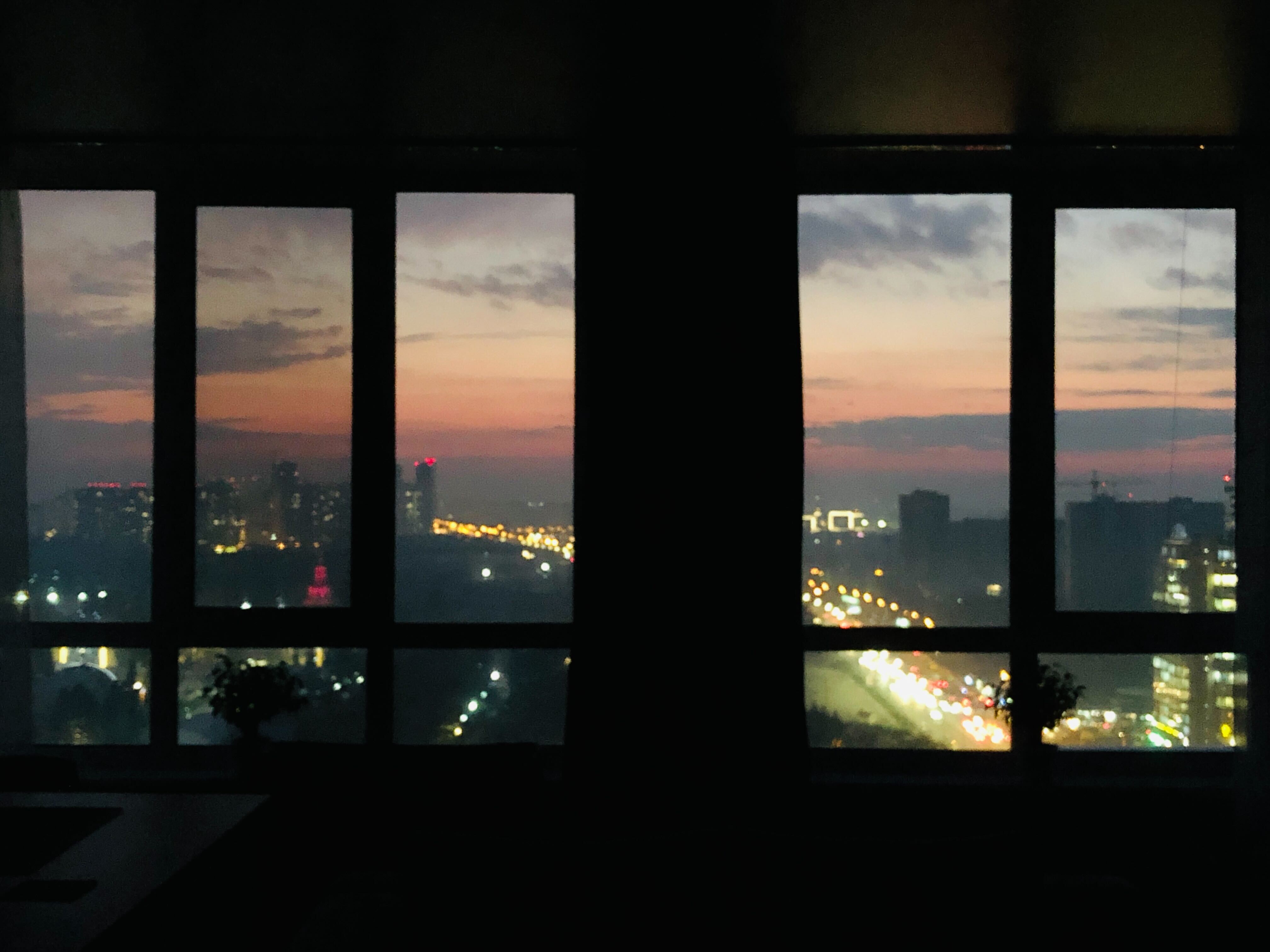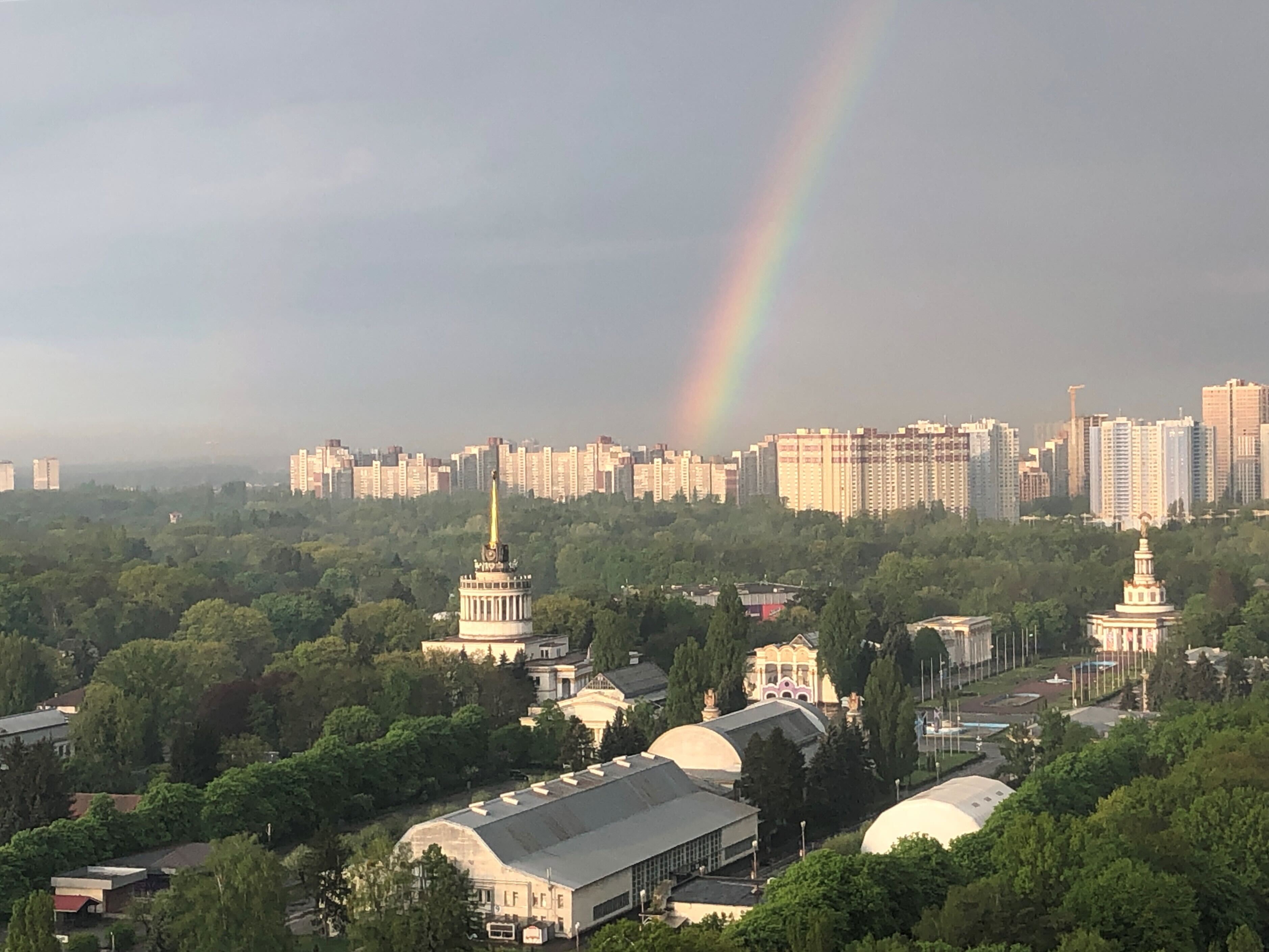Today is the one-year anniversary of Russia’s brutal, unprovoked, full-scale invasion of Ukraine. To mark the occasion, Kyiv Post has collected 17 stories to try and convey the breadth and scale of the loss caused to Ukrainians caused by the Kremlin’s aggression.
JOIN US ON TELEGRAM
Follow our coverage of the war on the @Kyivpost_official.
As the summer of 2021 faded away, an autumn chill took hold and enveloped Kyiv in its usual cloak of gray. Autumn in Ukraine typically arrives that bit earlier than in my home country of Great Britain.
After four years of living in Ukraine, it’s a pattern you notice, as much as you notice and appreciate the fantastic hot summer months that allow Kyiv its café terraces, fountains, open-air swimming pools and art exhibitions.
But there was something altogether different about autumn 2021. As the days grew shorter, something more menacing was developing over the horizon. Working from home on an almost daily basis, I regularly stayed in touch with BBC News. “Russia-Ukraine Tensions” was how they labelled it at the time. I Googled for more – I wanted to know what might happen and what the “experts” were thinking. There were lots of scenarios being discussed for what Russia may or may not do, with the least likely (so it seemed) being a full-scale invasion of Ukraine.
Russia’s troop build-up around Ukraine’s border continued to intensify, but I still wasn’t worried. According to trusted sources, they hadn’t installed field hospitals and they weren’t amassing sufficient troop numbers in Belarus for there to be any threat to Kyiv.

One Year Without Family
How quickly those reports changed.
My fiancée – a Ukrainian citizen – had just received a British Visitor Visa and we picked it up in early December. At that point, our biggest concern was still Covid-19 and its various entry and exit rules made more complicated by the arrival of the Omicron variant. Nevertheless, we made it to the U.K. where we spent a warm Christmas with my mum and friends before returning to Kyiv in January of 2022.
It was then that things started to heat up in my mind. Over dinner with an America friend and his wife, he said he still didn’t think the Russians would really invade. I was inclined to agree. Separately, a Ukrainian colleague of mine said, “Don’t worry, the situation is already starting to calm down.”
Cue U.S. President Joe Biden advising all citizens to leave Ukraine “while commercial means of transportation are still available.” Cue Western embassies pulling their staff from Kyiv. Cue friends and family abroad urging us to consider getting out.
That was the point when I knew we needed a contingency plan. I booked an apartment for a month in Krakow – enough time for it all to “blow over” – and my fiancée and I left Ukraine on Feb. 12. I remember that morning as we were preparing to leave. We went to a local clinic for Covid tests – and I consciously sensed how normal life was around us. We had lunch in one of the restaurants near Ocean Plaza and I glanced around at the customers, the waiting staff and people in the streets. Everyone was just going about their business, yet somehow we weren’t. Zhuliany Airport that morning was quiet – eerily quiet. So, was it just us? Were we being paranoid or was “normal” really about to end in Ukraine?
I’ll never forget Valentine’s Day in Krakow. That evening, my fiancée and I had dinner in a cellar restaurant and, at one point, all the lights started violently flashing on and off – several times. It’s not the first time I’ve had strange experiences with flickering lights (which didn’t help matters) but coincidence or not, it added to my sense of unease.
On the fateful morning of Feb. 24, we were clearly among the lucky ones. We were already in the safety of Krakow and I woke up in the early hours. For some reason, I couldn’t sleep that night. I refreshed the BBC News app on my phone and there were reports of explosions in Ukraine. Then more. And then the horror of what was unfolding that morning in the country I’d called home for four years unleashed itself at breakneck speed.
 The view from Adrian's apartment in Kyiv.
The view from Adrian's apartment in Kyiv.
I reached out to my American friend in Kyiv, who was still in bed at the time. I just said “explosions in Kyiv.” He acted immediately and had a much longer road than us – getting his wife and baby across Ukraine by car and ultimately having to endure hours at the border to enter Poland.
A couple of weeks later, my fiancée and I flew from Krakow to Britain, and it wasn’t until the summer of 2022 that we returned to Kyiv to get married as we had planned several months prior. We were determined to do it come hell or high water. We brought the ceremony forward by a couple of months and invited family and friends abroad to join via Zoom. We had about 10 in-person guests and 80 virtual guests. It was the best we could do. My mother even wore a hat despite being 2,400 kilometers away.
Kyiv that summer certainly felt different and more subdued than the place we left in mid-February – a city evidently in pain and shock.
 The view from Adrian's apartment in Kyiv.
The view from Adrian's apartment in Kyiv.
Looking back over these past 12 months, I know my wife and I are among the lucky ones. We’re living in Britain where we’ve both forged new ties, and for each new tie, it sadly meant losing one with Ukraine – the country we had planned to build our future in.
Our new little part of Ukraine is due to be born in April and for that we’re grateful. We plan to communicate with her in Ukrainian as well as English when she enters the world.
One day, who knows, we may go back to Ukraine. It’s still inside us – the country we love and the country my wife will forever call home. Until then, we believe that good will prevail.
You can also highlight the text and press Ctrl + Enter











